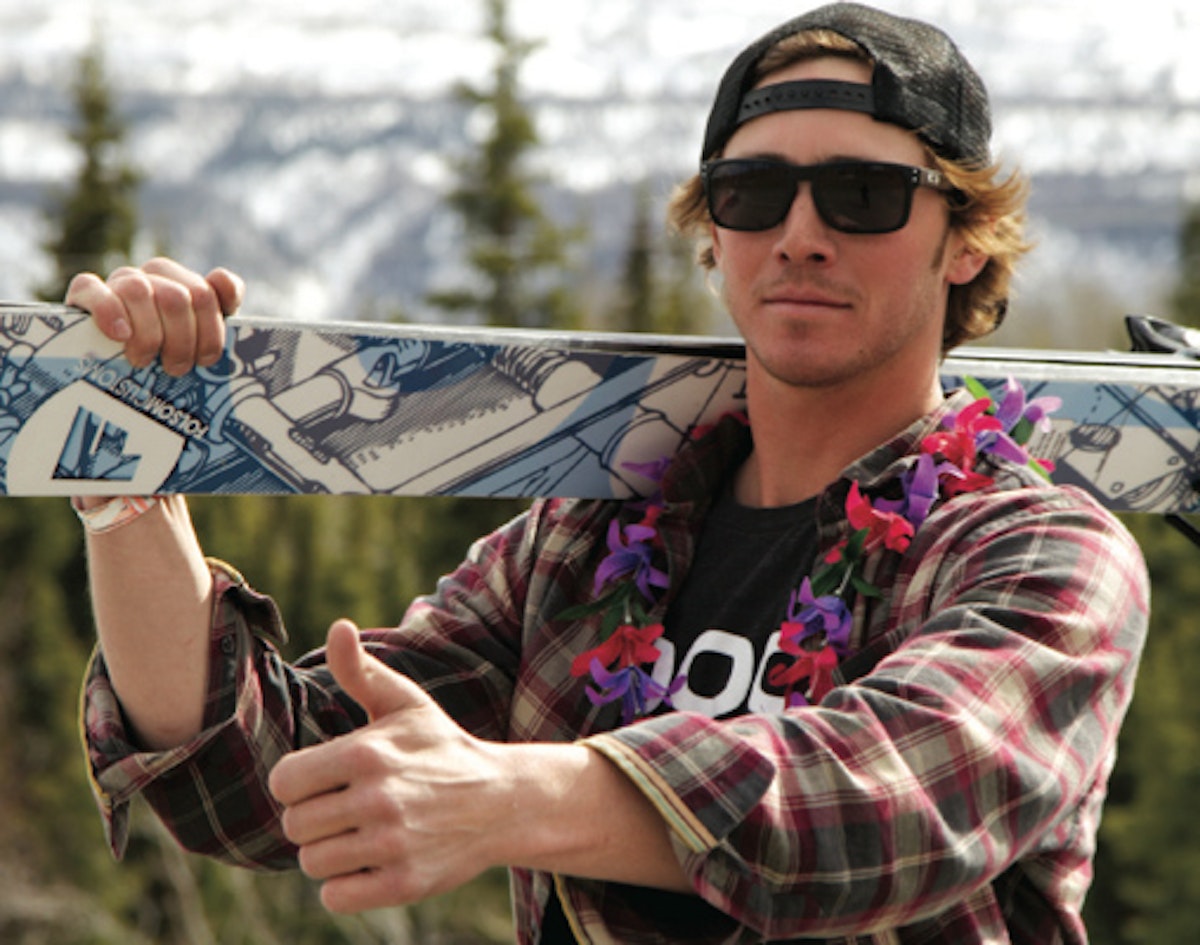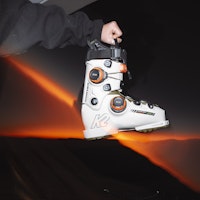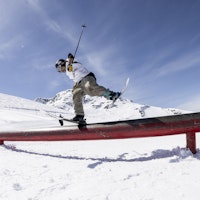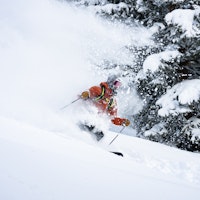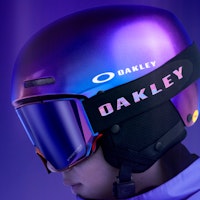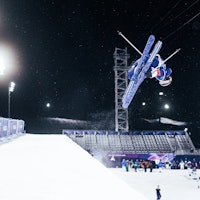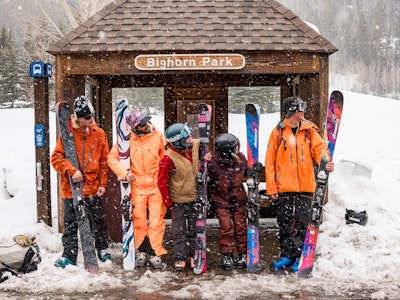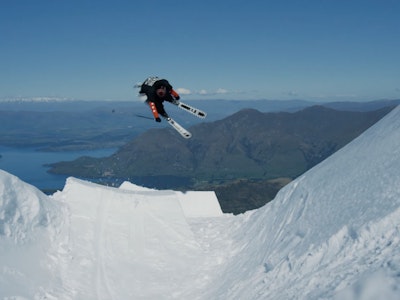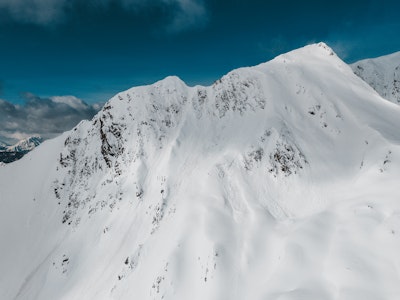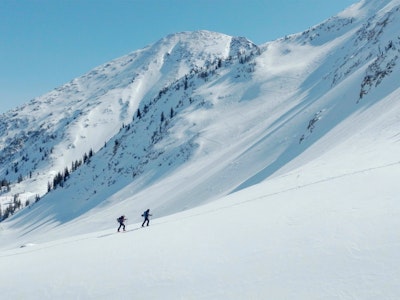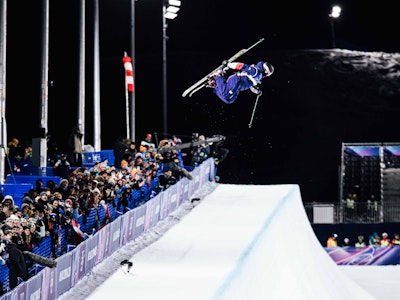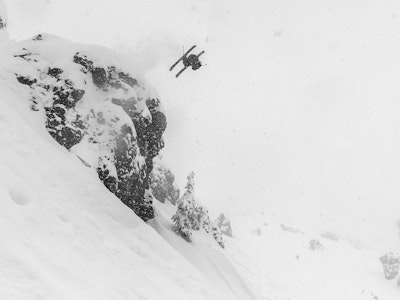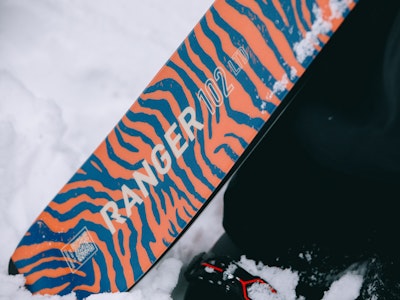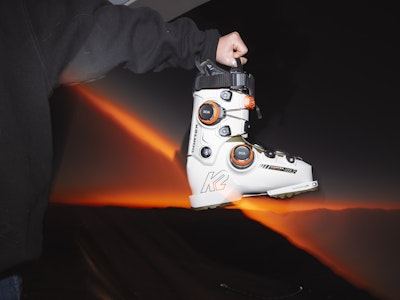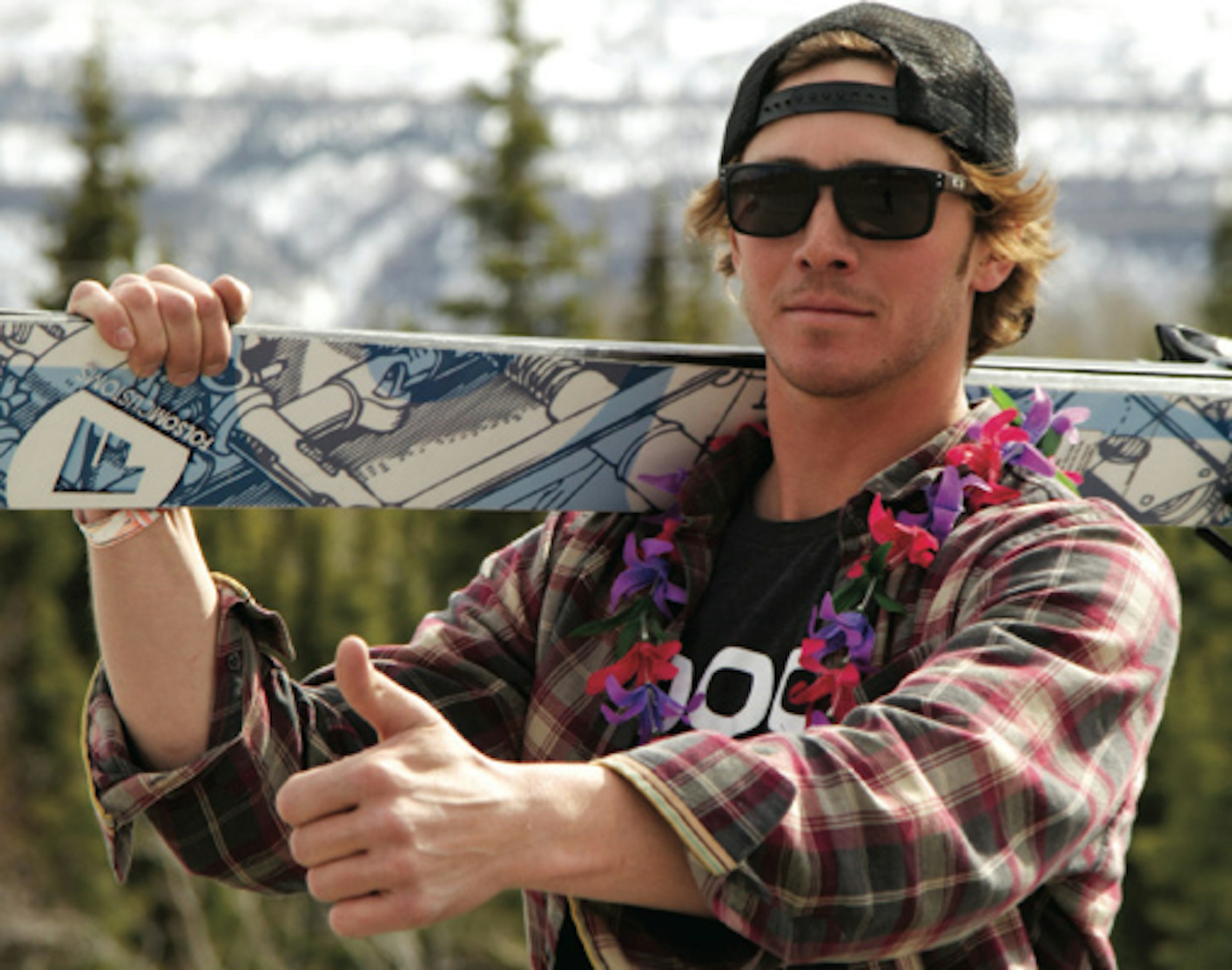Vitals:
It’s a ski bum’s dream—a week in Alaska with sleds and three buddies. For Aspen skier Austin Nelson, it was his second trip up north, his second shot at that dream and his first day on the Worthington Glacier, 30 minutes from Valdez. Nelson saw multiple helicopters fly through the bluebird sky and ski tracks everywhere he looked. He and a friend had just made their first tracks of the day and reconvened with the sleds. Nelson left the group and traversed across the slope to get a better look at their next line. He stopped about 200 feet from his friends, perpendicular to the fall line, and began sinking. All of a sudden, he began to free fall into total darkness. “I had no idea how far I was falling or where I was falling to, but I knew that that was it,” says Nelson.
He ping-ponged violently back and forth, from ice wall to ice wall, picking up speed until he landed on his back in a place that had never seen the light of day. As soon as he tried to stand, he knew his leg was severely broken. He didn’t know how far he’d fallen or if he’d be able to hear anyone, not only because he was god-knows-how-far down a crevasse but also because Nelson is deaf.
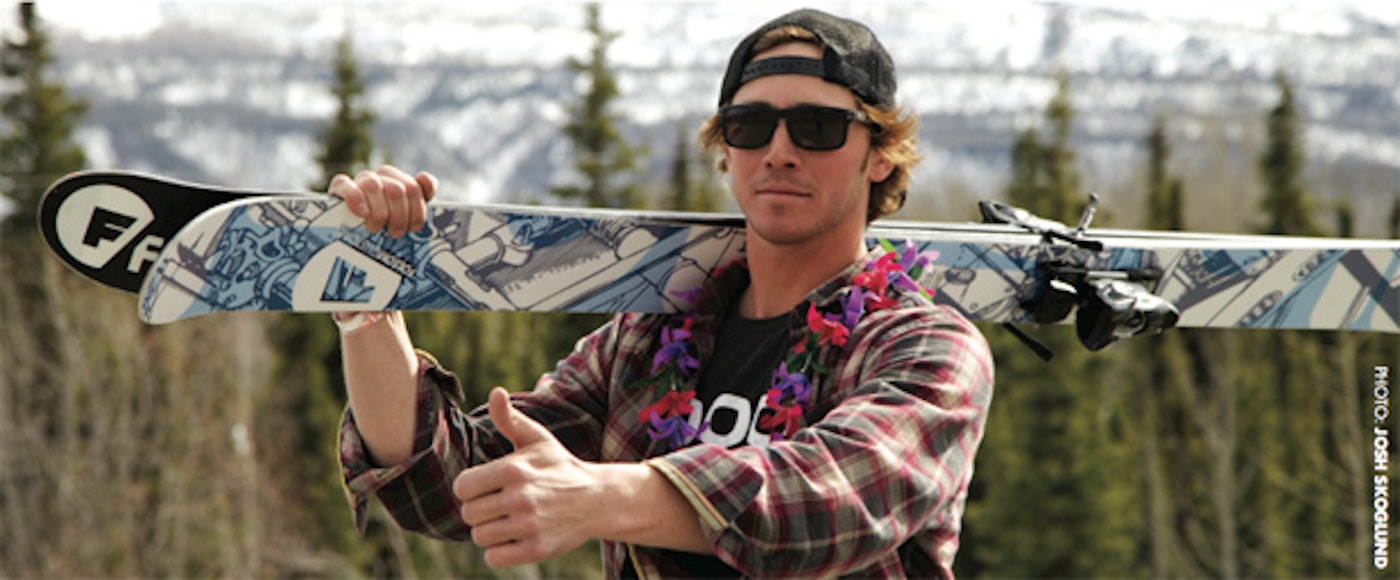
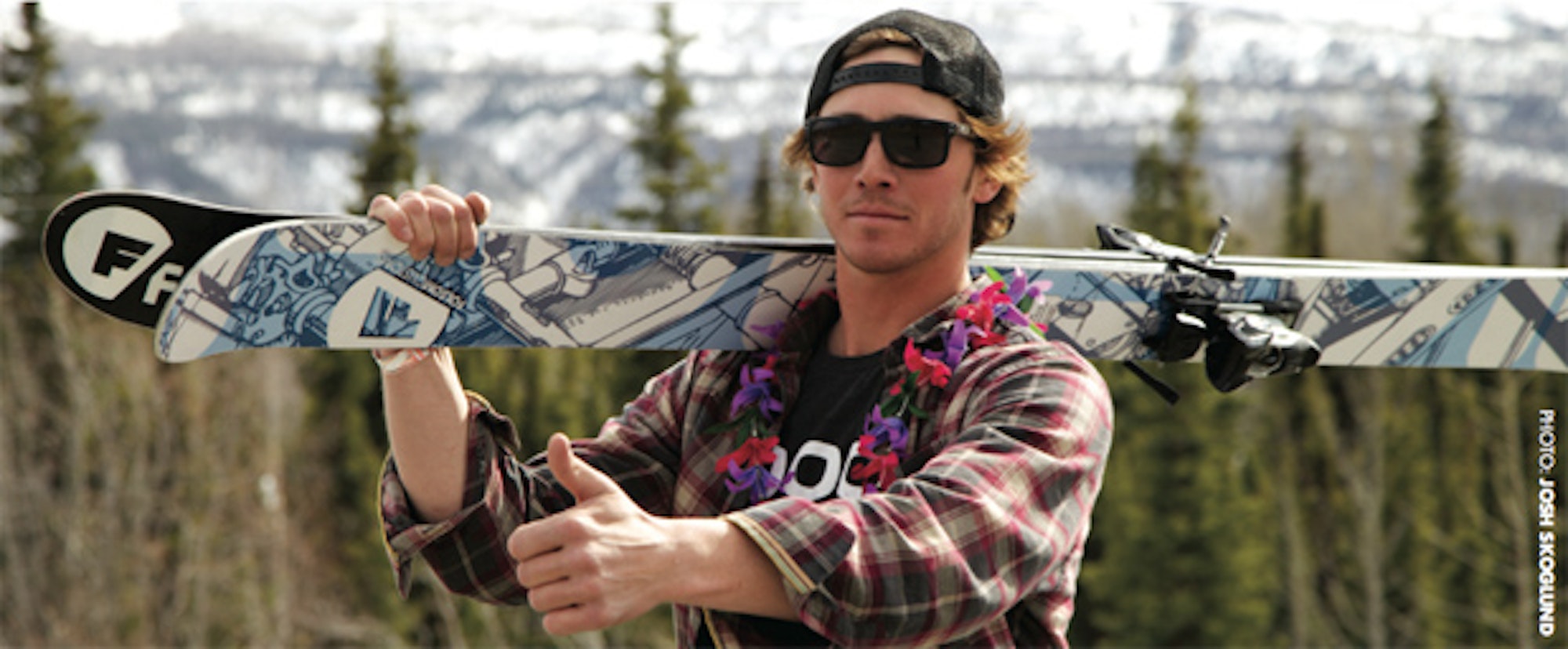
Thumbs up from Austin Nelson
His right hearing aid was compromised in the fall, so Nelson turned up the volume on his left hearing aid and sat in the darkness, waiting and hoping. Twenty agonizing minutes later, he heard the best sound he’d ever heard, “Austin!”
When Nelson was finally raised out of the crevasse, his body temperature was a dangerous 88 degrees. He had fallen more than 60 feet. “I’m so glad my left hearing aid was intact, allowing me to communicate with my rescuers,” says Nelson. Had that not been the case, the rescue could have been much more complicated and time consuming.
Nelson, 27, was born with damaged cochleae. Without hearing aids, he has 65-percent hearing loss in his left ear and 85-percent loss in his right. In elementary school, he wore a bulky pack on his waist with wires up to his ears. His teachers wore devices around their necks and the system worked like a two-way radio. “I got picked on a lot,” remembers Nelson, who learned to read lips and underwent speech therapy from ages 4 to 12. “I was always trying to decipher what people were saying.”
But the technology evolved rapidly, which Austin says is critical when you rely on it “all day, every day.” He remembers when hearing aids switched from analog to digital. He heard sounds he had never heard before, from the alarm on his watch to his own voice. “It took some time just to get used to my own voice as well, which sounds completely different.” Now, his hearing aids use Bluetooth to wirelessly sync to his iPhone, iPod and other devices. In a crowded bar, the aids automatically enhance human voices and soften background noise. “It’s cool having volume control,” says Nelson. “I can turn people down when I want.”
After graduating from University of Denver in 2008 with a degree in international business, Nelson moved to Aspen, where he’s skied at least 100 days each season. Last spring, he and a partner won “Battle of the Bowls,” a prestigious local race that uses GPS devices to time teams on their descents of the various bowls of Aspen Highlands. “He’s a strong, agile, powerful skier,” says Aspen Valley Ski Club coach JF Bruegger. “You can definitely see that racing background. He’s awesome to ski with. Everyone in our crew has their music in when they’re skiing, so I tend to forget he’s deaf.”
Nelson grew up in Connecticut, where his parents taught him to ski on weekend trips to Mohawk and occasional trips to Killington. “I’d ski without my hearing aid and forget I was hearing impaired. It was just me and the mountain.” Nelson started ski racing when he transferred to Green Mountain Valley School, an elite ski academy. He heard about the Deaflympics during his junior year, from a professor with a deaf son.
Held every four years since 1924, the International Olympic Committee-sanctioned Deaflympics is the second oldest international multisport event in the world. In 1949, the Deaflympics drew 1,000 athletes from around the world. Now, the event draws more than 2,500 athletes from 30 countries. Athletes in the Deaflympics can’t use hearing aids. Countdowns and timing cues are visual. Cross-country skiers tap the racer ahead of them with a pole to signal a pass. When a penalty is called in hockey, strobe lights flash around the rink.
At age 17, Nelson competed in the US Deaf Ski and Snowboard Association qualifiers, where he won the slalom and joined the US Deaflympic team. He earned a two-week break from school to train at the Olympic Training Center in Lake Placid. Nelson was assigned a sign interpreter (he doesn’t know sign language), and he then headed to Sundsvall, Sweden.
After crashing in the first run of the slalom event, Nelson ran last on the second run and notched the fastest time. When he placed sixth in the downhill, officials paid him a surprise visit and tested to make sure he met Deaflympics standards of not being able to naturally hear sounds softer than 55 decibels. He passed the test. “It was the first time in my life I was stoked to be deaf,” he says. Four years later at the Deaflympics in Park City, Utah, Nelson tied for third in super G and became the first American to medal in an alpine skiing event in Deaflympics history.
It was the first time in my life I was stoked to be deaf.
When the next Deaflympics were announced for Vysoke Tatry, Slovakia, Nelson began researching the High Tatras. Like his teammates in the US and comrades around the world, he fundraised to train like an Olympic hopeful and pay for his journey to Slovakia. But in February 2011, less than a week before Nelson was set to fly to Slovakia, the International Committee of Sports for the Deaf (ICSD) announced the 17th Winter Deaflympic Games would be canceled because of “the local organizing committee’s comprehensive failure to deliver on its promises.”
Some athletes arrived to nonexistent hotel reservations. The Canadian hockey team arrived to ice rinks still under construction. “I’d been a part of two Deaflympics, and they were so well organized,” says Nelson. “I never could have imagined this happening.” The president of the Slovakian Deaflympics Organizing Committee, Jaromir Ruda, was eventually found guilty of embezzlement and sentenced to 13 years in prison. “I feel bad for the first-time competitors,” says Nelson. “They might never know how amazing the event is.” The next Deaflympics will take place in 2015 in Vancouver, Canada.
“It will have been eight years since the last Deaflympics,” says Nelson. “There is going to be that new 17-year-old kid. I will be almost 30…” But after surviving a fall into a crevasse, Nelson has a renewed determination. During the fall, he shattered the base of his left tibia in 11 places and snapped his fibula. He’s now dealing with 12 screws and five plates. His doctor says he won’t be skiing this winter, but Nelson says otherwise. “I’ll be back this season to defend my Battle of the Bowls title. And then I want gold in Vancouver.”

